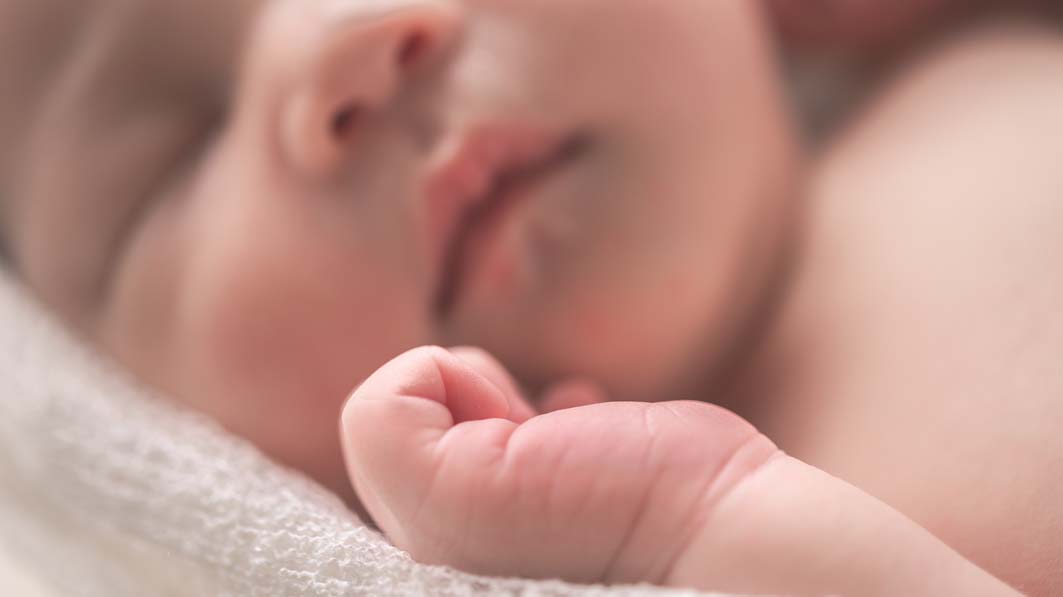Chinese Scientist Who Attempted to Genetically Engineer Babies, Failed

The Chinese scientist who edited the genes of twin girls during their embryonic stage of development to give them an immunity to HIV hasn’t been seen or heard from by the public in almost a year, but some of his research is finally seeing the light of day. It confirms some of scientists’ worst fears. Not only did his efforts fail, but he may have created even more genetic complications.
In November 2018, He Jiankui announced in China that seven families had agreed to have the genetic information of their preborn children modified to give them a greater degree of immunity to HIV. All the fathers were HIV positive, and one of the couples recently welcomed twin girls.
It was a shocking revelation, and scientists across the world were disturbed that an experiment could proceed without sufficient evidence to justify altering a human being’s genetic code.
Jiankui’s whereabouts currently remain unknown, but some of his research has been quietly circulating among scientists and other professionals and a portion is being shared by MIT Technology Review.
As Rita Vassena, the scientific director of the Eugin Group, said after reviewing the research: “Approaching this document, I was hoping to see a reflective and mindful approach to gene editing in human embryos. Unfortunately, it reads more like an experiment in search of a purpose, an attempt to find a defensible reason to use CRISPR/Cas9 (genome editing) technology in human embryos at all costs, rather than a conscientious, carefully thought through, stepwise approach to editing the human genome for generations to come. As the current scientific consensus indicates, the use of CRISPR/Cas9 in human embryos destined to give rise to a pregnancy is, at this stage, unjustified and unnecessary, and should not be pursued.”
Conducting scientific experiments on human beings is sometimes necessary, but it is always done with the closest of supervision. For example, if there is a new cancer drug that may show a remarkable degree of effectiveness, then extensive tests are done on animal subjects. After the animal studies have concluded, scientists and researchers move onto patients who agree to participate in the study. These patients are given a full list of possible complications and a portion will receive the new drug and others, a control group, will be given a placebo, which is something innocuous like saline or sugar.
Participating in a medical cancer study is always a risk, especially for those in the control group. What if the cancer spreads while they aren’t receiving the drug?
But this genetic experiment using CRISPR is both extremely risky and utterly reckless. Some of the most basic research on genetically manipulating human embryos was in its infancy at best (excuse the pun). To jump ahead, without the appropriate studies, and use patients who are unable to fully consent is a clear ethics violation. As the report revealed, the process wasn’t even successful.
Fyodor Urnov, a genome-editing scientist, wrote: “An egregious misrepresentation of the actual data that can, again, only be described as a blatant falsehood. It is technically impossible to determine whether an edited embryo ‘did not show any off-target mutations’ without destroying that embryo by inspecting every one of its cells. This is a key problem for the entirety of the embryo-editing field, one that the authors sweep under the rug here.”
Many of the scientists also agree that the process was completely unnecessary given that HIV is a public health and not a genetic issue.
Rita Vassena: “This work offers little justification for the editing and subsequent transfer of human embryos to generate a pregnancy. The idea that editing-derived embryos may one day be able to ‘control the HIV epidemic,’ as the authors claim, is preposterous. Public health initiatives, education, and widespread access to antiviral drugs have been shown to control the HIV epidemic.”
In addition, there are also reports that Jiankui and his team “tricked (other) doctors by switching blood samples and that not all of them knew they were involved in creating gene-edited children.”
In 2018, He Jiankui conducted an unnecessary and dangerous experiment that will impact seven families for the rest of their lives. The process was done not to benefit the children or their parents, but it was instead an expression of ego, recklessness and scientific curiosity in its most dangerous form, where the patients wellbeing isn’t even considered.
ABOUT THE AUTHOR
Brittany Raymer serves as a policy analyst at Focus on the Family, researching and writing about abortion, assisted suicide, bioethics and a variety of other issues involving the sanctity of human life and broader social issues. She regularly contributes articles to The Daily Citizen and has written op-eds published in The Christian Post and The Washington Examiner. Previously, Raymer worked at Samaritan’s Purse in several roles involving research, social media and web content management. While there, she also contributed research for congressional testimonies and assisted with the Ebola crisis response. Raymer earned a bachelor of arts in history at Seattle Pacific University and completed a master’s degree in history at Liberty University in Virginia. She lives in Colorado Springs with her beloved Yorkie-Poo, Pippa.
Related Posts

New York Ends Fight to Force Nuns to Pay for Abortions
January 27, 2026



